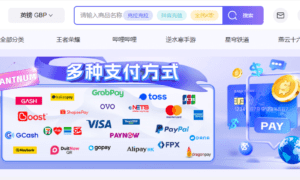Introduction
The financial world is witnessing a profound shift in how money moves across borders. For decades, global businesses relied on outdated banking systems for International Payments, enduring long waiting times, high fees, and unnecessary intermediaries. But things are changing fast. With blockchain technology at the forefront, transferring funds globally is now faster, more transparent, and more secure than ever before.
The Problem with Traditional Payment Systems
For years, businesses making cross-border payments faced a mountain of challenges. The old system was slow, expensive, and complicated. Here’s what companies had to deal with:
-
Transfers taking several days or even weeks
-
Excessive commission fees due to brokers and poor exchange rates
-
Limited transparency that made tracking transactions difficult
-
Manual paperwork and compliance hurdles in different countries
-
Exchange rate fluctuations and timezone mismatches causing delays
-
Repeated bank visits and cumbersome processes
These inefficiencies not only slowed down operations but also hurt profit margins. In a globalized economy, such friction limits growth and competitiveness.
Enter Blockchain: A Game-Changer for Global Transactions
Blockchain technology has emerged as the ultimate solution to the problems plaguing International Payments. It removes the middlemen, reduces costs, and enables peer-to-peer transfers using a secure, decentralized ledger.
Each transaction is verified by a network of computers and recorded permanently, ensuring security and transparency without relying on traditional financial institutions.
Core Benefits of Blockchain in International Payments
-
Instant Settlements: Transactions that once took days now take minutes.
-
Lower Fees: By cutting out intermediaries, businesses save significantly on transfer costs.
-
Full Transparency: Every transaction is traceable on an immutable ledger.
-
Security: Encrypted blockchain networks minimize fraud and unauthorized access.
Borderless Business: Expanding Global Reach
Blockchain-powered International Payments have opened new doors for companies aiming to expand across borders. Businesses no longer need multiple bank accounts or large pre-funded balances in foreign currencies.
Funds can move instantly at real-time exchange rates, giving companies full control over their international operations. This is especially beneficial for small and medium-sized enterprises that previously found global expansion too complicated or costly.
How Blockchain Empowers Modern Businesses
In today’s fast-paced market, speed and efficiency are no longer optional — they’re essential. Blockchain gives businesses a powerful advantage by simplifying transactions and strengthening financial agility.
Key Advantages for Entrepreneurs and Companies:
-
Stronger Supplier Relationships: Make on-time payments and build trust.
-
Improved Cash Flow: Eliminate the need for pre-funded accounts.
-
Higher Profit Margins: Reduced transaction costs mean more capital for innovation and growth.
-
Enhanced Transparency: Clear visibility into every payment and exchange.
By integrating blockchain-based International Payments, companies not only save money but also gain the confidence to operate globally without the fear of delays or losses.
Transforming Cross-Border Payments Forever
Cross-border transactions used to be synonymous with complexity, but blockchain has flipped that narrative. With its decentralized structure, smart contracts, and real-time verification, payments are becoming:
-
Faster – near-instant global settlements
-
Cheaper – minimal transaction fees
-
Smarter – automated and auditable
-
More Secure – protected from fraud and double-spending
Businesses that adopt blockchain early are positioning themselves for long-term success in international trade.
The Future of Global Commerce
The integration of blockchain into International Payments marks the beginning of a new era in finance. It’s not just an upgrade — it’s a revolution that’s reshaping the global economy.
As blockchain continues to evolve, we can expect to see even greater improvements in speed, scalability, and accessibility. From supply chain settlements to global remittances, blockchain is setting a new gold standard for how money moves worldwide.
Conclusion
Blockchain technology is redefining the way we handle International Payments, making them seamless, cost-effective, and borderless. The inefficiencies of the old banking system are being replaced by speed, security, and transparency.
For businesses, this means more opportunities, improved liquidity, and a stronger position in the global marketplace. In the near future, blockchain won’t just be an option — it will be the backbone of international commerce.
FAQs
1. What makes blockchain ideal for international payments?
Blockchain enables direct peer-to-peer transactions without intermediaries, reducing costs and delays.
2. How fast are blockchain-based international payments?
Most blockchain transfers are completed in minutes compared to traditional transfers that take days or weeks.
3. Is blockchain safe for cross-border transactions?
Yes, transactions are encrypted, verified across multiple nodes, and permanently recorded, making them tamper-proof.
4. Can small businesses benefit from blockchain payments?
Absolutely! Blockchain lowers fees and complexity, making global trade more accessible for smaller companies.
5. What’s next for blockchain in global finance?
Expect more widespread adoption, integration with AI, and fully automated payment systems for global trade efficiency.

































